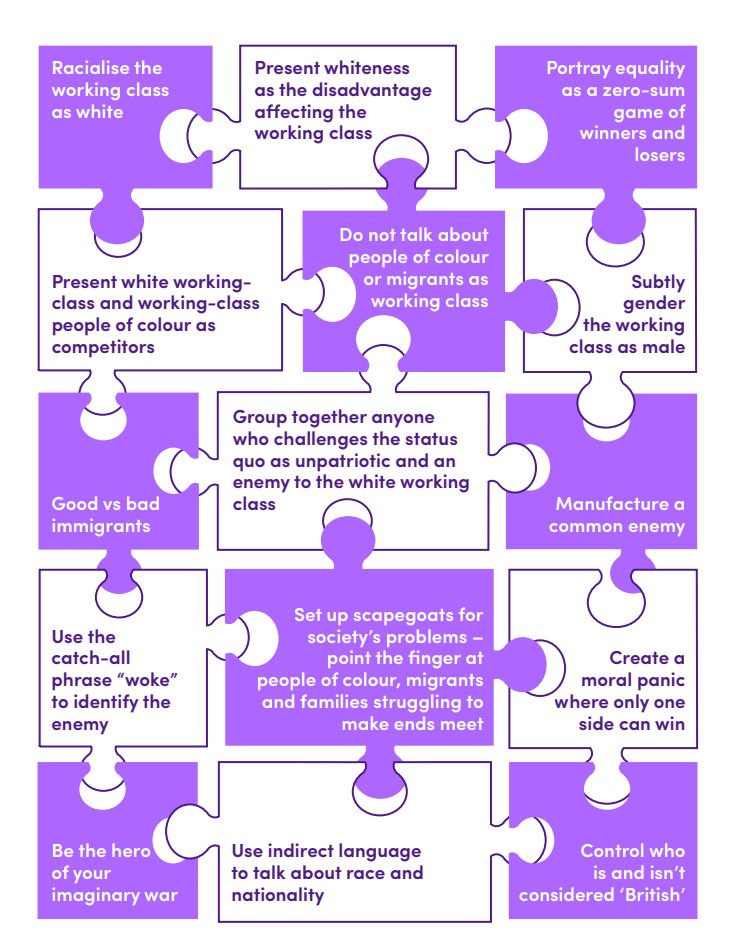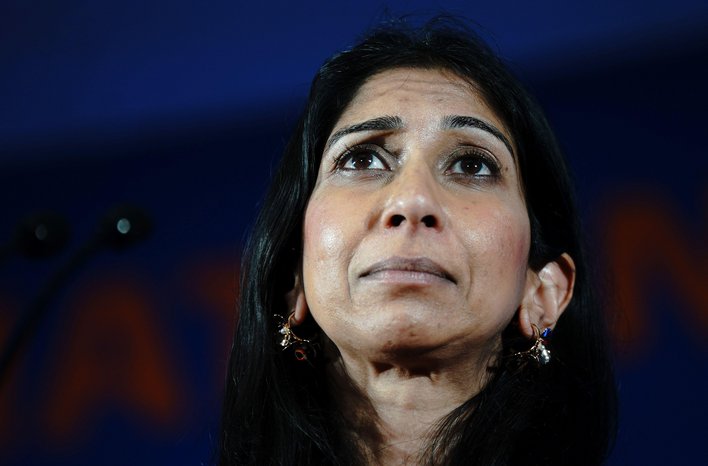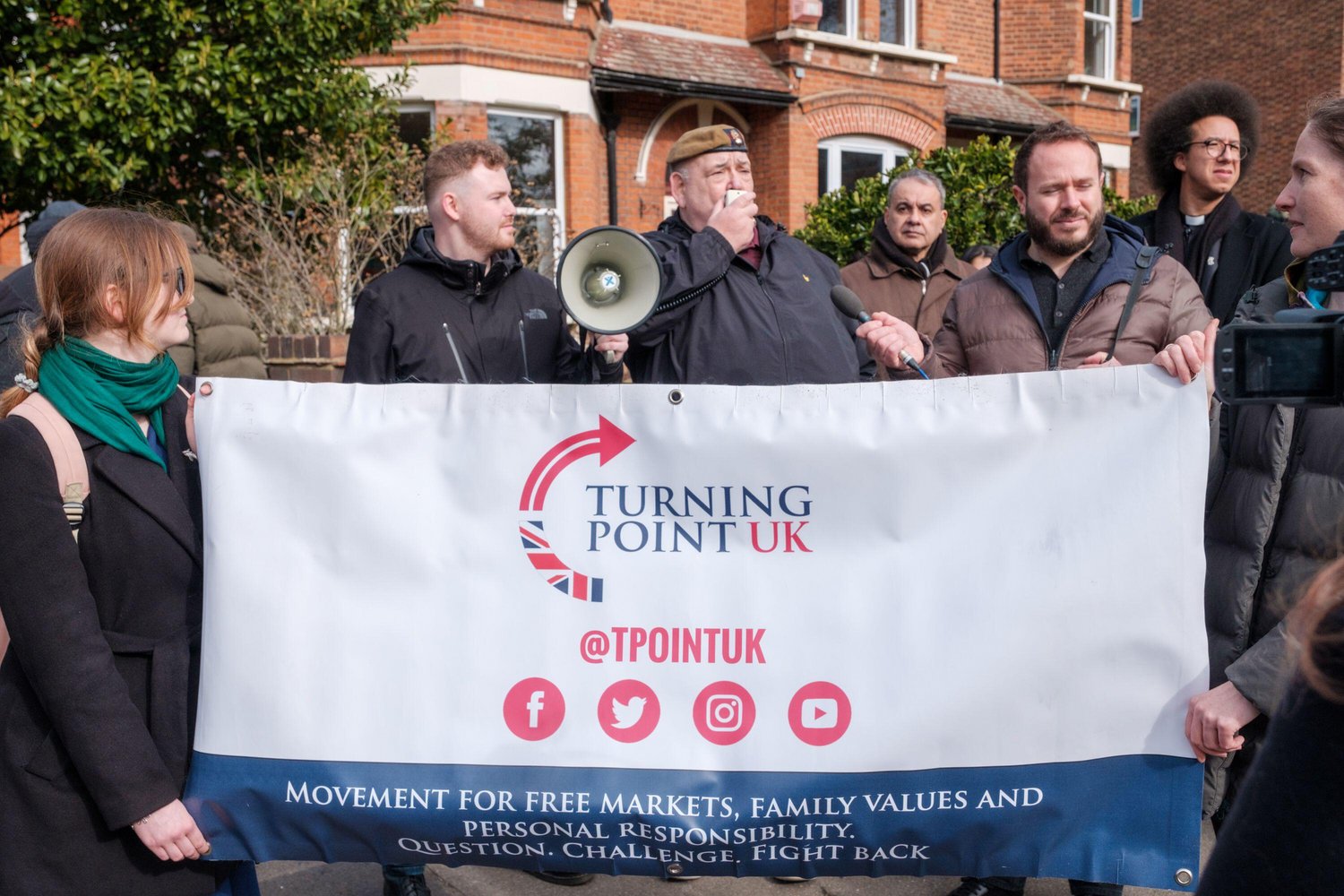The far right has a compelling narrative. Progressives need one too.
Some of the worst things said at the National Conservative conference were puzzle pieces of a much larger story. Here's is your guide - and a suggestion on how to push back.
Last week, horrified liberals and left wingers shared numerous clips of the National Conservatism conference in London. Unaffiliated with the Conservative Party, but featuring speeches from a number of cabinet ministers, the conference was held by the US think tank - the Edmund Burke Foundation - which, amongst other things, believes in marketised healthcare, opposes abortion and same sex marriage, and doubts the veracity of climate science.
In the offending viral clips, conference speakers extolled the virtue of “staying together for the kids” in heterosexual marriages, railed against liberal elites, and at one point seemed to imply that the Holocaust and invasion of Europe was simply Nazi Germany “mucking up.” One of my friends, upon seeing the latter clip, exclaimed, “the conference’s official account chose to post this???” and it’s a good point. Why, in an era where Britons are more socially liberal than perhaps they’ve ever been, do the speakers at the National Conservatism conference feel permitted to say this stuff out loud?
If we look back at the past decade of British politics, an answer emerges. The speeches at the National Conservatism conference were not the mutterings of a few assorted crackpots, but the most extreme expression of a narrative about the UK that has steadily been gaining dominance.
The story might sound familiar to you. It argues that hardworking (implicitly white) British people have been held hostage by the “wokemob,” a sinister internal enemy that is intent on handing out unfair privileges to minorities like immigrants and transgender people, and getting away with it by making the white working class - the real minority - feel ashamed of themselves. Virtually everything said at the conference and other similar events fits into the narrative, as you can see in the diagram below.

The diagram is part of a report I project managed in 2021, when I was the Director of the Centre for Labour and Social Studies (CLASS), alongside US consultancy ASO Communications. By analysing over 500 media and political sources, we not only charted this “anti-woke” story, but found that it was highly understandable, easily remembered and fired up the kind of people the organisers of the National Conservatism conference would consider their base.
Our analysis suggests the “anti-woke” story has been a useful distraction tool for the right to prevent a progressive coalition from forming around economic issues, by making its potential members see themselves as enemies when it comes to cultural issues. And perhaps this is why its most clear - and successful - application was during the EU referendum by the Leave campaign.
But the story also serves a personal purpose for the individuals who really believe in it. Instead of seeing themselves as unfairly privileged by their wealth, race or gender, the “anti-woke” story allows these individuals to view themselves as the underdogs, persecuted by the liberal elites who have the real power. This exempts them from examining the ways in which they have benefitted from the system, and it creates the sense that the National Conservatism conference is an expression of oppressed people finally coming up for air. Or as conference speaker Baron David Frost (a climate denier) put it, they are finally getting a chance to put forward their “normal ideas.”
The biggest advantage the “anti-woke” story has is that there is currently no compelling progressive story to compete with it.When we tested the progressive story, a bland text about diversity and inclusion that was so patchy it was challenging to even put to research participants, we found that a third of people couldn’t even remember it after they’d heard it, let alone say whether they liked it. Worse still, some participants actually confused the progressive story for the “anti-woke” story because it repeated “anti-woke” words and phrases.
The fact that the organisers of the National Conservatism conference felt emboldened enough to promote the event out in the open should have been a red flag to progressives that we are losing ground, and losing it badly. And much of this is our own fault. While the right has been working on a resonant, emotional narrative that defines people’s experiences of the UK, we have at once been too underconfident to promote our own values, while spending too much of our time repeating the “anti-woke” story in order to denounce it. Not only does repeating that story mean more people hear it, accusing our opponents (often accurately) of racism without offering any wider compelling context simply adds weight to their argument that “you can’t say anything anymore” lest the wokemob come after you.
Even the Labour Party - arguably the country’s most influential progressive institution - has responded to this failure of messaging by flirting with the “anti-woke” narrative. Labour leader Keir Starmer has spent much of his time as leader emphasising his patriotism, equivocating over transphobic talking points, and pledging to match the cruelty of the Conservatives when it comes to immigration. Presumably Starmer thinks the “anti-woke” story is too ascendant to beat back, but all Labour’s acquiescence has done is create the impression of a consensus.
Thus, despite our increasingly socially liberal population, the main avenues of mainstream debate - like newspapers, current affairs programmes and political parties, are talking as though the “anti-woke” story is the only game in town.
We urgently need a story of our own that can neutralise that of our opponents. Our report found a new way of speaking that can beat the “anti-woke” narrative in terms of persuading our research participants.
Instead of focusing on the sins of the “anti-woke” narrative, we began by focusing on the progressive values we share with our audience. Then we spoke in specific terms about the problems ordinary people are facing like the cost of living and defunding of public services (two major issues that were noticeably absent from the National Conservatism conference agenda), before promoting progressive solutions and a grassroots call to action. By many different metrics, our stories outperformed the “anti-woke” story. They were memorable and understandable, and they fired up the oft-neglected progressive base while persuading those who are on the fence.
We have the tools to take on the hard right and win. But first we need to be proud of what we stand for, and trust that most people in the UK are kinder and more accepting than the tabloid press would have us believe. And we need to trust they’re open to the world we’re trying to build.
The Lead is now on Substack.
Become a Member, and get our most groundbreaking content first. Become a Founder, and join the newsroom’s internal conversation - meet the writers, the editors and more.





